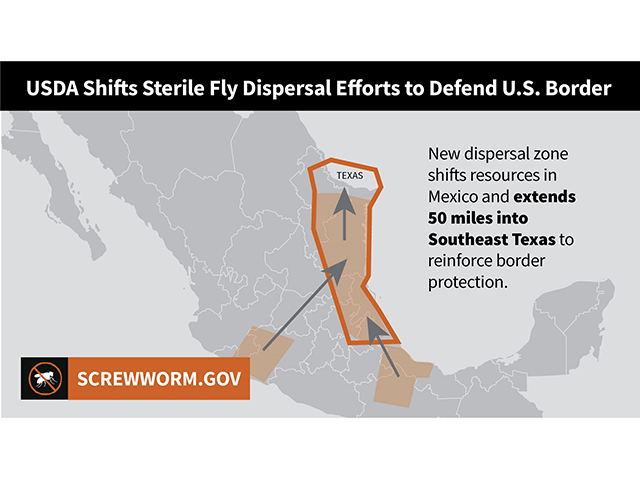Senior Partners - 7
Retire With a Passport
INDIANOLA, Iowa (DTN) -- Transitioning a farm to the next generation involves more than financial paperwork and management transfer. Many farmers near retirement look for that next "spark" to fill their time and give them a new purpose.
"If you like people and a little adventure, you can't beat the volunteer opportunities in the Farmer-to-Farmer program," said 60-year-old Vermont farmer Howard Prussack. It's an international aid program jointly funded by the U.S. government and non-profit organizations with help from farmer volunteers. In February, Prussack spent two weeks in El Salvador training farmers. That's after a trip over Christmas to advise farmers in Myanmar, a Southeast Asian country recovering from nearly 50 years of military rule.
"You'd be surprised at how much you know, almost instinctively, about farming that can greatly help someone on the other side of the world -- whether it's how to fix a tractor or understand the fundamentals of soil biology," said Prussack.
Prussack volunteers through Winrock International which has projects in over 60 countries, including the Farmer-to-Farmer program, funded by the U.S. Agency for International Development (USAID).
The Farmer-to-Farmer program pays all your expenses, said Jen Snow with Winrock International. That includes your vaccinations, visa, transportation, lodging and food. A local contact person sets your daily schedule and accompanies you while you are in the country. You know ahead of time what the organization wants you to teach the local farmers. Each trip averages two to three weeks.
The program is demand driven, explained Snow. "Local field staff identify specific needs, whether it be farm management/business planning, crop or animal production, or marketing. Then our recruiters find American farmers with those skills and contact them."
The USAID Farmer-to-Farmer program also works with other established farmer-assistance non-government organizations such as ACDI/VOCA and CNFA.
Nancy Morey, a New York sheep, goat and chicken producer, has been on four overseas Farmer-to-Farmer assignments in Ethiopia, Turkmenistan, Tajikistan and Sumatra. In Ethiopia, she trained farmers in ruminant nutrition. "Sometimes, it is something very basic," said 62-year-old Morey. "One group of farmers knew how to grow hay but after cutting it, they left it lying in the field and didn't store pile it to protect it during the rainy season. So one day, we made hay and they learned how to store it. I also taught them about budgeting and breeding."
P[L1] D[0x0] M[300x250] OOP[F] ADUNIT[] T[]
Sometimes it's just a matter of getting someone to look at their resources in a different way. A South Sudanese farmer was interested in Winrock's ox plow training course. However, local community members asked him, "Why do you want to punish your bulls by making them pull a plow? Are you mad?" The idea of using the symbol of one's status and wealth to till the land was met with resistance. But the Sudanese farmer went through the training that also included planting techniques, pest control and seed varieties. The result: record corn yields. After that, 20 other community members wanted to have ox plowing and agronomic training.
"I tell farmers, even the worst Vermont farmer has more advanced knowledge about farming than the farmers I've worked with in impoverished areas," said Prussack. He helped train more than 900 people in Myanmar on soil and water testing and how to grow vegetables.
Jeff Embry, an Arkansas corn/soybean/wheat farmer has been on 10 overseas assignments. "I've helped Turkmenistan farmers with soybean production and have helped others with fertilization and weed control."
In Mozambique, Farmer-to-Farmer soil conservation advisers with CNFA taught local farmers about soil micro-organisms and the value of composting, mulching and incorporating green manure plants. As a result, their vegetables were more resistant to pests and diseases, requiring fewer pesticides; production increased 5% and net income rose 43%.
To apply, you can fill out an application on-line. "That gets you into our system, so when we have an assignment and we do a search for someone with the skills we need, your name may come up," explained Snow of Winrock International.
Or you can keep checking the websites. "On a regular basis, we update our volunteer opportunities and you can respond directly to those opportunities and a recruiter will contact you," added Snow. Winrock places a couple hundred volunteers overseas per year.
The beauty of working with Winrock and other USAID Farmer-to-Farmer programs is they pay for everything and take care of you when you are in the foreign country, noted Prussack. Morey agreed, "I never worried about my safety. Someone was always with me."
The USAID Farmer-to-Farmer program only works with organizations that have been through a strenuous, competitive process that details their understanding of a foreign country's needs, support of that country, the capacity to handle volunteers once they arrive in that country and accountability for results from the volunteer advisers.
It's not a cushy vacation. "You need to be open-minded and open-hearted. These are very impoverished, Third-World countries. You're not a tourist," said Prussack. "But you get into the heart and soul of the country in a way a mere tourist never could imagine. What you get in return are smiles, friendships and gratitude. These are the hardest-working farmers you've ever met who earn about $300 per year. Also, you come back with a greater appreciation of how lucky we all are and how much we have. You are just more appreciative of your family, your country and your career."
For more information:
EDITOR'S NOTE: DTN's on-going Senior Partners series examines the financial, legal and emotional hurdles families face as they transition farm ownership from the senior to junior partners. To read other features in the package go to DTN/The Progressive Farmer In-depth at http://www.dtn.com/…
(MZT/ES/AG)
Copyright 2013 DTN/The Progressive Farmer. All rights reserved.



